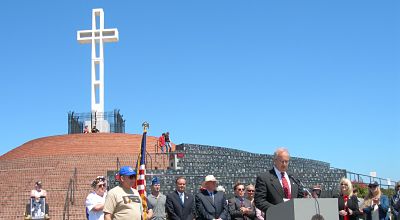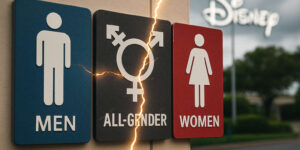San Diego Memorial Cross Remains Under Fire
The Mt. Soledad Veterans’ Memorial cross in San Diego remains under fire—but the battle is far from over.
An Alliance Defense Fund (ADF) filed a friend-of-the-court brief on Tuesday that urges the U.S. Supreme Court should agree to review a lower court’s decision that declared it unconstitutional.
ADF attorneys filed the brief on behalf of the United Retired Firefighters Association, which represents retired New York City firefighters—including 9/11 first-responders—and the American Legion Department of California, which represents military veterans.
Both organizations wish to protect memorials to America’s fallen heroes and argue that a person or group merely offended by a cross included in such a memorial does not have legal standing to attack it in court.
“Public monuments to honor those who gave their lives in service to our nation should not be torn apart based on the subjective ‘offense’ of a litigious few,” says ADF Senior Counsel Joseph Infranco. “Allowing that to happen places the future of these beloved memorials into the hands of activists whose sole concern is furthering a divisive, political agenda, no matter the cost.”
The ADF brief argues that the Supreme Court should accept review of the case, Trunk v. City of San Diego, and reaffirm existing precedent that only those with a “direct stake” in the outcome of a dispute can bring it into court.
“Offended observers have no such direct stake and the psychological harm to which they lay claim pales in comparison to that caused by the demolition of public memorials dedicated to those who gave their last full measure of devotion to our nation,” the brief states.
For many years, the American Civil Liberties Union and others have sought to have the Mt. Soledad Veterans’ Memorial cross torn down on behalf of individuals and groups who claim to be offended by the memorial’s cross.
In 2010, the Supreme Court concluded that another veterans’ memorial, a cross standing in California’s Mojave Desert, did not have to be removed: “The goal of avoiding governmental endorsement does not require eradication of all religious symbols in the public realm. … The Constitution does not oblige government to avoid any public acknowledgment of religion’s role in society,” the high court wrote.




























































